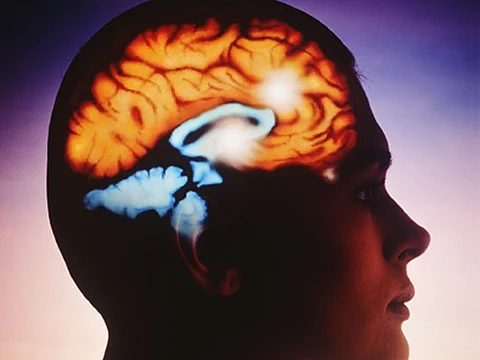TUESDAY, May 2, 2017 (HealthDay News) -- Undetected seizures may contribute to some symptoms associated with Alzheimer's disease, such as confusion, according to research published online May 1 in Nature Medicine.
The study involved two women, both in their 60s with signs and symptoms of Alzheimer's disease. Neither of the women had a history of seizures. The researchers assessed mesial temporal activity using intracranial foramen ovale electrodes.
The team detected clinically silent hippocampal seizures and epileptiform spikes during sleep. One of the women experienced three seizures during a 12-hour period, with none producing any visible symptoms. Anticonvulsant medication eliminated the seizure-like activity. She experienced only one episode of confusion over the next year, which occurred after missing several doses of the medication. The other woman had similar electrode recordings and discontinued anticonvulsant medication due to effects on mood.
"Our findings confirmed the presence of serious dysfunction of the neuronal networks affected by Alzheimer's disease and confirmed our hypothesis that epileptic phenomena are an important component of that disturbance," senior author Andrew Cole, M.D., of the Massachusetts General Hospital Epilepsy Service in Boston, said in a hospital news release. "We now have to study more individuals to validate this finding and understand how prevalent it is in Alzheimer's patients, whether it occurs in other neurodegenerative disorders and how it responds to treatment."
Abstract
Full Text (subscription or payment may be required)


